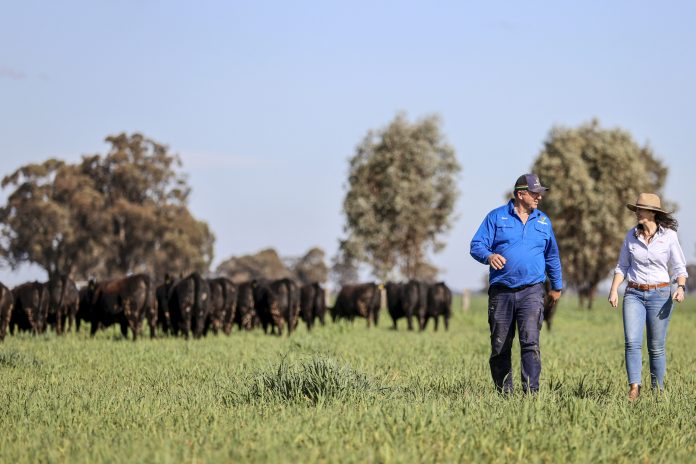Coles Group has announced a new Scope 3 emissions supplier engagement target which will see the retailer work in partnership with at least 75% of its suppliers by spend[1] to set science-based emissions reduction targets by the end of June 2027[2].
Scope 3 emissions are indirect emissions that occur throughout the life cycle of a product, including agriculture, processing, manufacturing and distribution, and make up the majority of the retailer’s overall emissions.
The target has been approved by the internationally recognised Science-Based Targets Initiative (SBTi)[3] that drives climate action by enabling global organisations to set science-based emissions reduction targets.
Coles Chief Operations & Sustainability Officer Matt Swindells says the retailer will work with its suppliers over the next four years to support them to set their own science-based emissions reduction targets.
“We understand that we need to reduce our own emissions as well as those that occur in our supply chain, and we are looking forward to working alongside our suppliers to help them set their own targets and reduce emissions,” he said.
“Whether our suppliers are just starting out on their emissions reduction journeys, or already making progress in achieving their own targets, we are committed to working together to reduce emissions and achieve our sustainability ambitions.”
This is the latest step in the retailer’s journey to be net zero by 2050[4], with Coles committed to reducing Scope 1 and 2 greenhouse gas emissions by more than 75% by the end of June 2023[5] and achieve its 100% renewable electricity target by the end of June 2025 through onsite solar and largescale generation certificate deals, as well as investment in renewable projects, which offset its electricity consumption.
Coles tomato supplier Sundrop Farms CEO Steve Marafiote welcomed the retailer’s new supplier related target and said it provides the industry with leadership and direction on how to lower emissions.
“We’ve been working with Coles over the past eight years to lower emissions on our farm. Thanks to the partnership, we’ve been able to invest in solar and desalination technology which has both lowered our emissions and allowed us to supply delicious tomatoes to Coles customers all year round,” he said.
Meat and Livestock Australia Managing Director Jason Strong congratulated Coles on working with its suppliers to take positive action on climate, as the Australian red meat and livestock sector works towards achieving its target of being carbon neutral by 2030.
“Initiatives like this from Coles have potential to provide direction and leadership to help achieve our target of carbon neutrality by 2030. We look forward to seeing the progress Coles can make with its supply chain in the coming years,” he said.
This new target and resulting emission reductions will help Coles and its suppliers support the delivery of Australia’s national Paris Agreement commitment to reduce emissions by 43% from 2005 levels by 2030 and net-zero CO2 emissions by 2050.
To further support suppliers to drive innovation and sustainability, Coles continues to award grants of up to $500,000 to small and medium sized businesses as part of the Coles Nurture Fund. To date more than $33 million has been provided to over 100 businesses since the initiative started in 2015.
[1] Covering purchased goods and services and upstream transportation and distribution.
[2] This supplier engagement target commits that 75% of Coles’ suppliers by spend covering purchased goods and services and upstream transportation and distribution will have science based targets by FY27.
[3] sciencebasedtargets.org The SBTi defines and promotes best practice in science-based target setting, offers resources and guidance to reduce barriers to adoption, and independently assesses and approves companies’ targets.
[4] At this point in time our commitment refers only to Coles’ Scope 1 and 2 emissions.
[5] From a FY20 baseline.




